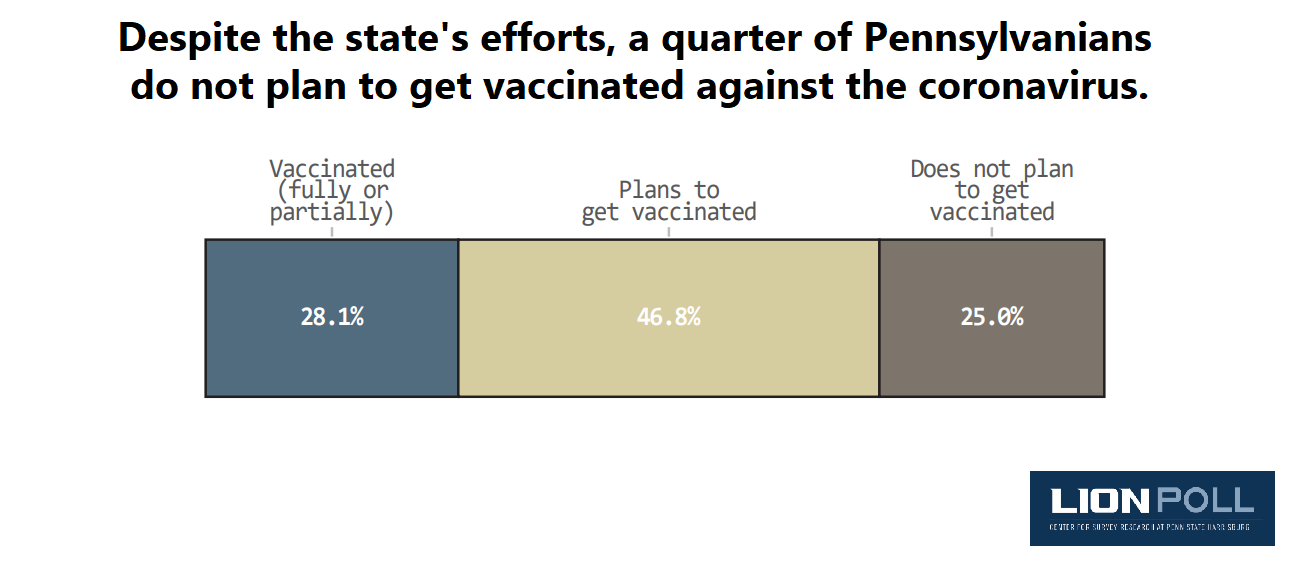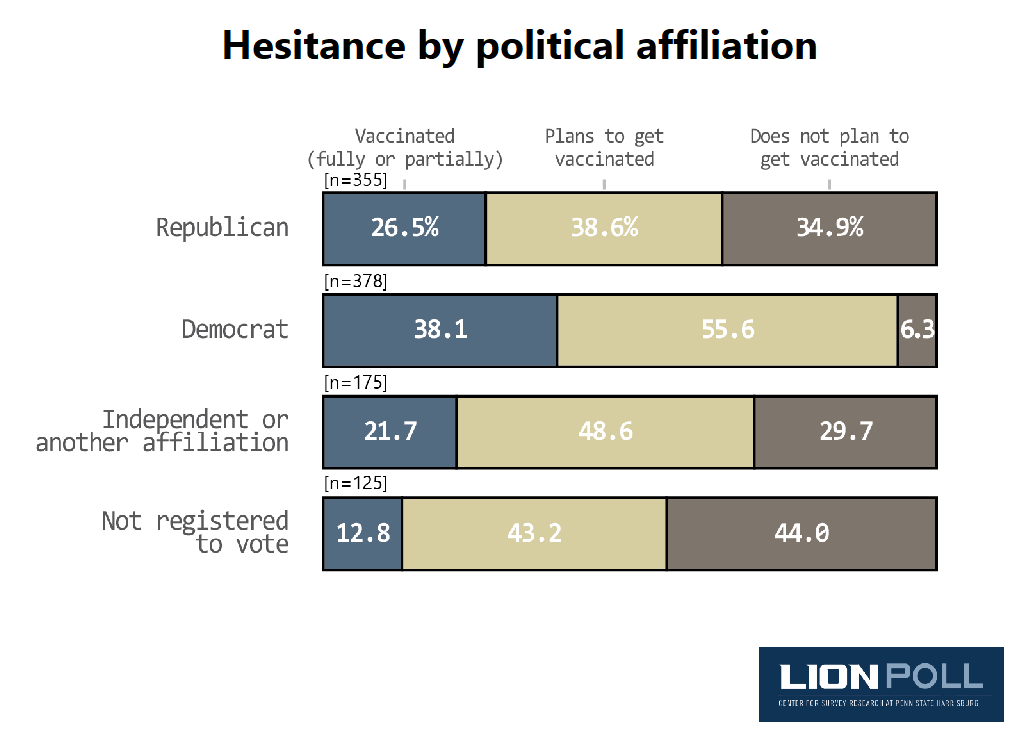
Even as Pennsylvania dramatically increased the availability of Covid-19 vaccines this spring, a quarter of state residents remained reluctant to avail themselves of the shots.
That's according to a poll released this month by the Center for Survey Research at Penn State Harrisburg's Institute of State and Regional Affairs.
The poll, which is known as the "Lion Poll," after the university's Nittany Lion mascot, found that 75 % of Pennsylvanians either had been vaccinated or were planning to be. The other 25%, however, said they definitely or probably would not get vaccinated.

The rate of hesitancy among respondents varied dramatically according to age, race, region and political affiliation.
While only 6.3% of registered Democrats said they don't plan to get vaccinated, 34.9% of Republicans expressed reluctance, a more than fivefold difference.
The greatest hesitancy, though, was among those not registered to vote at all: 44.0%.

Black and Hispanic respondents were about 11 percentage points more likely to be hesitant than non-Hispanic whites. People in rural areas were more hesitant than those in cities. Younger Pennsylvanians were significantly less interested in getting the vaccine than those over age 65, who are at much greater risk of serious illness or death.
"Providing education on the vaccine’s benefits and ensuring that the message reaches these vaccine-hesitant groups will be essential in reducing the pandemic’s lasting effects," said Tim Servinsky, project manager at the Center for Survey Research.
The poll results are based on responses from 1,044 adult Pennsylvanians collected on the Internet between Feb. 23 and April 20. It is weighted to reflect Pennsylvania's demographics and has a sampling error of plus or minus 3 percentage points.
The polling period slightly overlapped the nationwide "pause" in administering the Johnson & Johnson vaccine, which began April 13 to allow researchers to evaluate a handful of blood clots found in patients following the J&J shot was given.
Polls looking at hesitancy after the pause found conflicting results, with some finding greater hesitancy and others finding greater confidence in vaccine safety. In the case of the Lion Poll, very few responses were collected after April 13, too few to make any meaningful before-and-after comparisons, Servinsky said.






